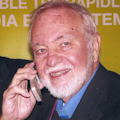I read many books during the year but I only write about the ones I really like. Here is one I like and it is one you may like to read as well. Ten Essential Skills for Electrical Engineers is a 245 page soft cover from IEEE Press/Wiley by Barry L. Dorr is directed primarily at students studying EE in college. It sums up ten of the main subjects Dorr thinks they need to know. I agree with these core topics.
Here is a list of the ten subjects and my comments:
- How to design resistive circuits. A real must as you never get away from having to make some resistive circuit for your design.
- How to prevent a power transistor from overheating. Dorr shows how to figure out what you need. Most of us solved this problem with brute force by just bolting the power transistor to a big hunk of metal or snapping on the largest heat sink we could find and praying.
- How to analyze a circuit. This chapter is mainly about calculating basic frequency response. Again something that is a constant in most analog designs.
- How to use statistics to ensure a manufacturable design. Here is something they do not often teach you in school. A good topic. I wish EE programs would require a course in probability and statistics instead of some of the other math courses often required. A real practical chapter.
- How to design a feedback control system. The basics reviewed. Not something every grad will eventually use but others will find it useful.
- How to work with op-amp circuits. A good review of the basics all EEs should know.
- How to design analog filters. The focus is on active filters but a good review.
- How to design digital filters. This is a good review of sampling and DSP in case you never learned it in school. Designing FIR and IIR filters.
- How to work with RF signals. The emphasis in this chapter is on transmission lines and the Smith chart. In today’s high speed digital or RF worlds, everything is a transmission line.
- Getting a job – keeping a job – enjoying your work. Good basic advice for the grad.
I like this book as it is a good example of how you can take a complex subject and boil it down to the most important essentials. I think that EE students will love this one as they are often stuck with some monster academic tome that includes everything there is to know about the subject without ever finding out what is really important and how to apply it.
This is also a great book for practicing EEs who want a good review of the basics or to fill in the gaps that might have occurred in their education. I had fun going through the book testing myself on what I knew. The author also provides some practical problems to solve so you can check what you learned. Looking at the ten topics you can tell that the main emphasis is analog/linear for the most part.
If I had written this book I would have added two other chapters to make a dozen. I would add one on power sources like power supplies, switching regulators, energy efficiency, batteries, etc. All EEs have to deal with power sources. That topic would be hard to boil down but a good one.
I would also have tried to include some digital related topic like embedded controllers and/or FPGAs. Again, a broad tough topic to boil down. With every electronic product having a processor at its core, the topic has become basic electronics. Just a thought.
Check this book out. I recommend it for working engineers. It is worth the investment.
About the Author

Lou Frenzel Blog
Communications Technology
Click here to find more of Lou's articles on Electronic Design.